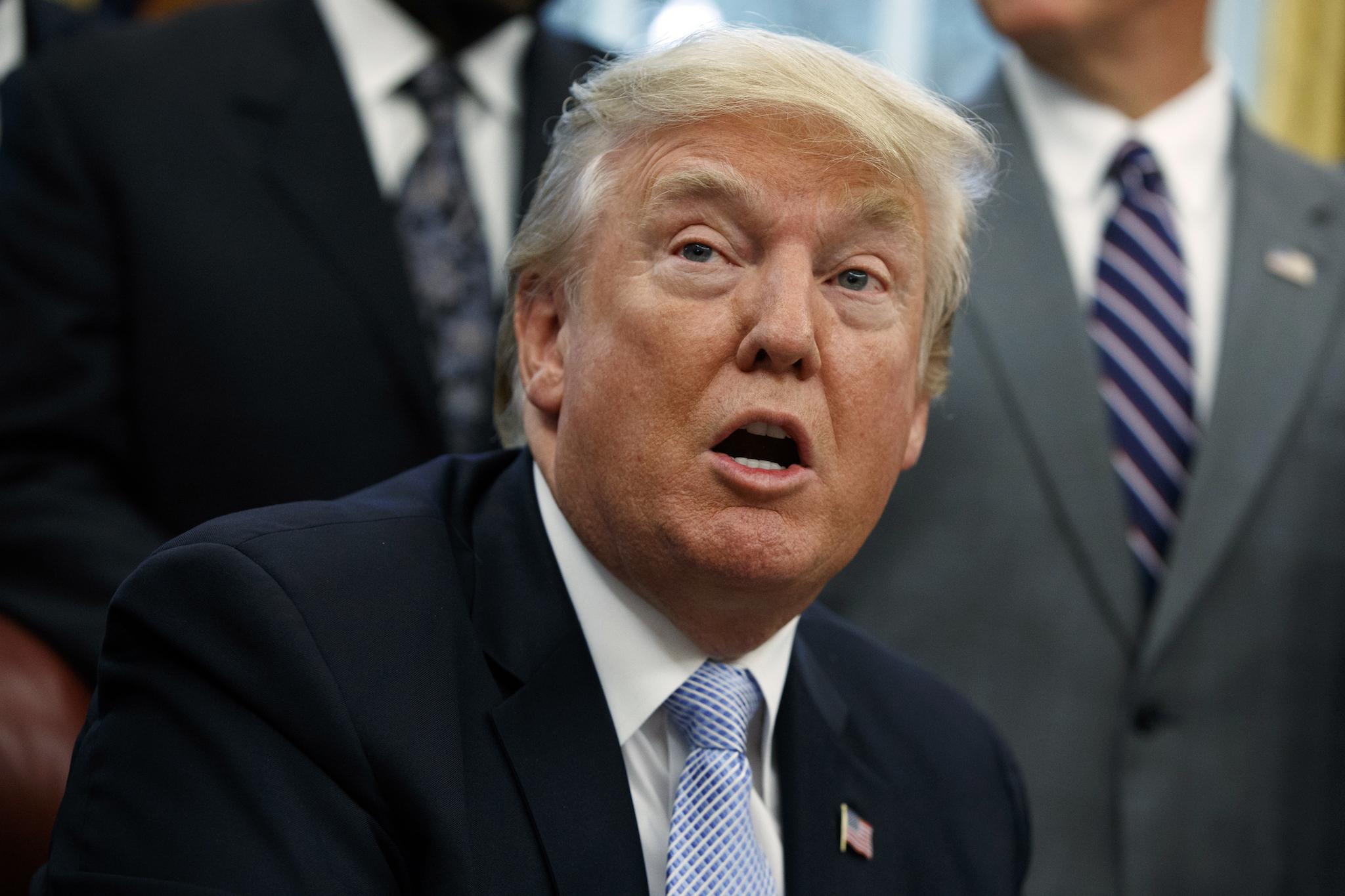Trump says he's getting things done at a 'record' speed despite no major legislative victory
'Many big decisions to be made over the coming days and weeks', the President said

Your support helps us to tell the story
From reproductive rights to climate change to Big Tech, The Independent is on the ground when the story is developing. Whether it's investigating the financials of Elon Musk's pro-Trump PAC or producing our latest documentary, 'The A Word', which shines a light on the American women fighting for reproductive rights, we know how important it is to parse out the facts from the messaging.
At such a critical moment in US history, we need reporters on the ground. Your donation allows us to keep sending journalists to speak to both sides of the story.
The Independent is trusted by Americans across the entire political spectrum. And unlike many other quality news outlets, we choose not to lock Americans out of our reporting and analysis with paywalls. We believe quality journalism should be available to everyone, paid for by those who can afford it.
Your support makes all the difference.Donald Trump has said his administration “continues to get things done at a record clip”, despite having no major legislative victory and the uncertainty over multiple items on his policy agenda that need to be figured out by the end of September.
“General John Kelly is doing a great job as Chief of Staff. I could not be happier or more impressed – and this Administration continues to ... Get things done at a record clip,” Mr Trump wrote on Twitter. “Many big decisions to be made over the coming days and weeks. AMERICA FIRST!”
When they return to Washington next week, legislators will have about 12 working days to raise the debt ceiling and approve a federal budget – two tasks that have been made difficult by the differing priorities of the administration and members of Congress.
On top of that, if the Senate wants to pass a bill to overhaul Obamacare – otherwise known as the Affordable Care Act – with just 51 votes, it must do so by 30 September, according to the Senate parliamentarian.
The Senate’s Republican leaders suffered a colossal defeat in July when they failed to get enough members of their own party to vote for a bill that would have dismantled Barack Obama’s healthcare law.
After the failed vote, Senate Majority Leader Mitch McConnell said the upper chamber would move on to other matters, but Mr Trump has continued to call on Congress to repeal and replace Obamacare.
Republicans were using a process known as reconciliation to try to pass their healthcare measure, meaning they only needed 51 votes in support of the legislation in the 100-member Senate instead of the normal 60.
To conform to the rules of reconciliation legislation, the bill must meet certain requirements, including reducing the budget deficit. Most other bills can be filibustered – when debate over a proposed piece of legislation is extended – and would need 60 votes to end the filibuster, or invoke closure.
If Mr McConnell does not pass healthcare legislation by the end of the month, he will need at least some Democratic support to pass any type of healthcare reform this year.
Meanwhile, government funding is scheduled to run out at the end of September, and Mr Trump has threatened to shut down the government if lawmakers don’t include $1.6bn in funding for his oft-promised border wall.
“Build that wall,” Mr Trump said at an August rally in Phoenix. “Now the obstructionist Democrats would like us not to do it. But believe me, if we have to close down our government, we're building that wall.”
Mr Trump’s demand threw a wrench into already complicated budget negotiations.
Because legislators are unlikely to reach an agreement by September 30 on what the government should spend its money on for the next year, Congress is expected to vote on a stopgap funding bill that will keep the government running from October until at least sometime in early December.
According to the Washington Post, shortly after Mr Trump made his remarks in Phoenix, the White House quietly signalled to Republican congressional leaders that border wall funding would not need to be included in the stopgap measure.
“I don't think a government shutdown is necessary and I don't think most people want to see a government shutdown, ourselves included,” House Speaker Paul Ryan said last week.
At the time it will be negotiating a budget bill, Congress will also be considering how to raise the debt ceiling.
The Treasury Department has said the $19.9 trillion cap on the amount the federal government may borrow to pay its debts must be raised by 29 September. If Congress fails to increase this amount, the government could default on its debt, and many economists have warned that economic growth could slow down significantly as a result.
Federal debt is the amount of money the government currently owes for spending on payments such as Social Security, Medicare benefits, military salaries, interest on the national debt and tax refunds.
While the budget and debt cap are separate, they are likely to become entangled.
Mr Trump’s Treasury Secretary Steve Mnuchin has been pushing for a “clean” raise to the debt ceiling, meaning one that is not attached to spending cuts or any other bills. But conservative Republicans in Congress have said they don't want to increase the US’s borrowing limit without also cutting federal spending in the process.
Democrats are likely to oppose any proposed deep cuts to federal spending.
Mr McConnell and Mr Ryan have repeatedly said the debt ceiling would be raised without issue.
Join our commenting forum
Join thought-provoking conversations, follow other Independent readers and see their replies
Comments